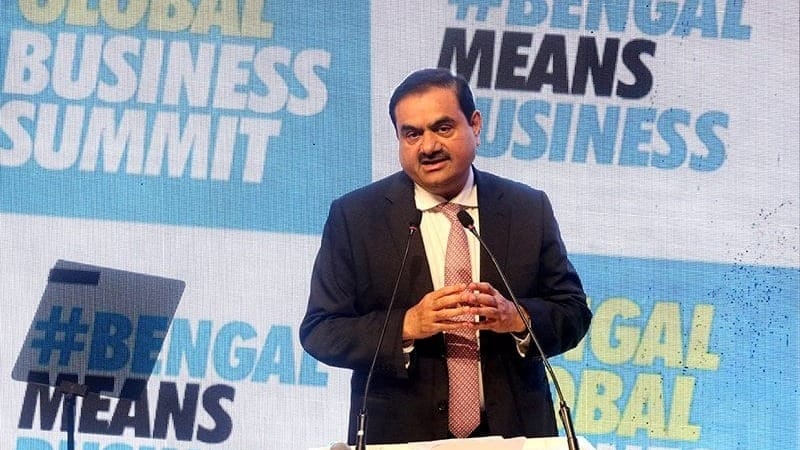
Gautam Adani is an Indian industrialist and the founder of the Adani Group, a conglomerate with interests spanning ports, energy, logistics, and infrastructure. Under his leadership, the Adani Group has become one of India's largest and influential business entities.
Adani is widely recognized for his close association with Prime Minister Narendra Modi and the ruling Bharatiya Janata Party (BJP). This relationship has led to allegations of cronyism, with critics asserting that Adani's companies have benefited from favourable government policies and contracts.
Adani indictment
In November 2024, US prosecutors indicted Gautam Adani on charges of securities fraud, wire fraud, and violations of the Foreign Corrupt Practices Act (FCPA). The charges, announced in Brooklyn federal court, allege that the defendants orchestrated a complex bribery scheme to secure solar energy contracts in India and misled international investors to raise over $3 billion.
Hours after the New York Eastern District Court indicted Gautam Adani and the board of directors of the Adani Group, the conglomerate dismissed the charges as baseless. The company stated its commitment to governance, transparency, and regulatory compliance, asserting innocence until proven guilty. The Adani Group also confirmed it was prepared to pursue all legal options. The response followed the group’s withdrawal of a $600 million bond issue in the US shortly before the indictment.
Hindenburg controversy
In January 2023, Hindenburg Research accused the Adani Group of stock manipulation and fraud, triggering a sell-off that wiped over $50 billion from its market value, eventually ballooning to $153 billion before partial recovery. The Adani Group dismissed the allegations, calling them a "calculated attack" on India's institutions and growth narrative. In 2024, Hindenburg claimed the chair of India’s market regulator SEBI had invested in offshore funds tied to Vinod Adani.
Political ramifications if allegations are proven
The US federal indictment accuses Gautam Adani, Sagar R. Adani, and Vneet S. Jaain of paying over $250 million in bribes to Indian government officials between 2020 and 2024 to secure energy contracts projected to generate $2 billion in profits over 20 years. Although the bribery charges are linked to Indian officials, American law allows it to pursue corruption cases if they involve American investors or markets. Evidence reportedly includes emails, spreadsheets, and photographs documenting bribes, with meetings personally led by Gautam Adani. Arrest warrants have been issued for Gautam and Sagar Adani, and US authorities are seeking international law enforcement assistance.
The indictment has triggered financial repercussions for Adani's conglomerate:
Bond prices drop: Adani Port, Adani Electricity, and Adani Transmission bonds fell by 5–8 cents in early Asian trade.
Largest fall since Hindenburg report: This marks the biggest market impact since allegations of fraud by Hindenburg Research, which erased $150 billion in market value.
Politically, proven allegations could strain the Government’s relationship with major industrialists, intensify calls for transparency in contract awards, and prompt stricter regulations to curb corruption. US involvement in the case may also impact India-US diplomatic ties, spotlighting international collaboration on corporate fraud prevention.
Congress vs BJP on Adani probe demand
The Congress party has reiterated its call for a Joint Parliamentary Committee (JPC) investigation into the group's financial dealings, echoing concerns over alleged links between the Adani Group and Prime Minister Narendra Modi. Senior Congress leaders, including Jairam Ramesh and Rahul Gandhi, have criticised the government for failing to hold Adani accountable, with Ramesh pointing to the US Securities and Exchange Commission's (SEC) actions as further justification for the probe. Gandhi, in particular, accused the PM of protecting Adani, claiming that the industrialist is operating with impunity despite the legal charges against him.
The Congress has argued that the alleged scams have led to monopolisation in key sectors of the economy, rising inflation, and broader foreign policy challenges. Gandhi has gone as far as to demand the immediate arrest of Adani, questioning why legal action has not been taken in India despite the American charges.
As the political debate intensifies, Congress remains steadfast in its demand for a full investigation, urging that it should cover all states regardless of the political party in power. The indictment has further fuelled a narrative of corruption and complicity that Congress leaders will likely continue to highlight in the upcoming parliamentary sessions.
The BJP maintained that the law would take its own course and placed the responsibility on the Adani Group to provide clarifications and defend itself.
Adani Group has options to settle
Under the FCPA, US laws allow for settlements in bribery cases, often through Deferred Prosecution Agreements (DPAs) or Non-Prosecution Agreements (NPAs). Such agreements typically involve monetary penalties, admission of certain wrongdoing, enhanced compliance measures, independent monitoring, and limited restrictions on future activities, such as reduced access to US funding.
The current charges against the Adani group remain allegations, with guilt yet to be established. The legal process is expected to be lengthy, likely involving a grand jury trial. In the short-to-medium term, the allegations may hinder the Adani group’s ability to access international funding markets, which have been a preferred source of capital through foreign currency-denominated bonds.

